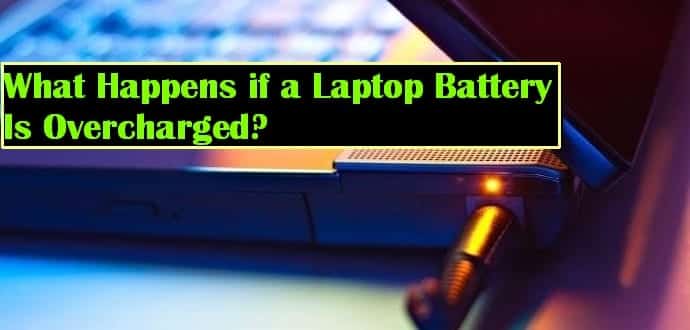What Happens if a Laptop Battery Is Overcharged?
One question that laptop users perennially have is whether overcharging laptop will cause any damage to the laptop battery. Most of the laptop users prefer to use those laptop connected to the DC plug. Does this harm the laptop battery? Will overcharging damage the battery and require replacement?
These are some of the questions that we look into in this article. First of all, let us understand what overcharging is. Over-charging occurs when the charger keeps the battery at a temperature that is warm to touch (body temperature) while in ready condition. For example, you have kept your laptop connected to the DC outlet and the battery continues to suck power even after it has been recharged. Almost all modern laptop batteries are made of Lithium-Ion and have built-in controller chips which prevent it from overcharging. This chip switches of DC power supply as soon as the Li-Ion battery reaches full charge. However, in case the switch off doesn’t happen, the laptop might explode. This is what happened with Samsung’s Note 7 Android smartphone and the reason behind so many explosion reports that we had in September.
A lithium-based battery should never be allowed to get warm in a charger. If you have this happen, the battery is no good or the charger is not working properly. Don’t continue to use the battery or charger if this happens.
Table Of Contents
Does the laptop battery wear and tear if it is kept connected to the DC outlet?
While there is no evidence to suggest that a battery can wear down if kept on direct charging continuously, it is important to note that electronic gadget does wear out after a couple of years.
As long as the laptop is relatively new (in the last few years), keeping it plugged in day in day out may make no difference.
However, there are studies that suggest that keeping your laptop or smartphone battery charged at 80 % to extend it life. There are many power tools that help you do that. Nowadays, the laptop manufacturers themselves ship native power management tools to achieve that.
If you are using your laptop in a fixed position and don’t use it while being on the move, you might remove the batteries from the laptop. Do remember to put them in every two months to keep them charged.
When to remove the laptop battery
HP suggests a two-week rule of thumb for when to remove the battery from your laptop and put it into storage. Remove the laptop battery when:
- Your laptop is going to be off for two weeks (for example, put into storage or if your laptop is seldomly used).
- You use your laptop plugged in (to an electrical outlet or in a docking station) continuously for two weeks or more, as most people do with desktop replacement laptops.
If you remove your battery, keep it in 25 to 30 degrees Celsius. The most common recommendation for laptop battery storage is to have it charged to about 40% and a cool dry place. You can keep it in your fridge but do remember to bring it to room temperature before using it.

